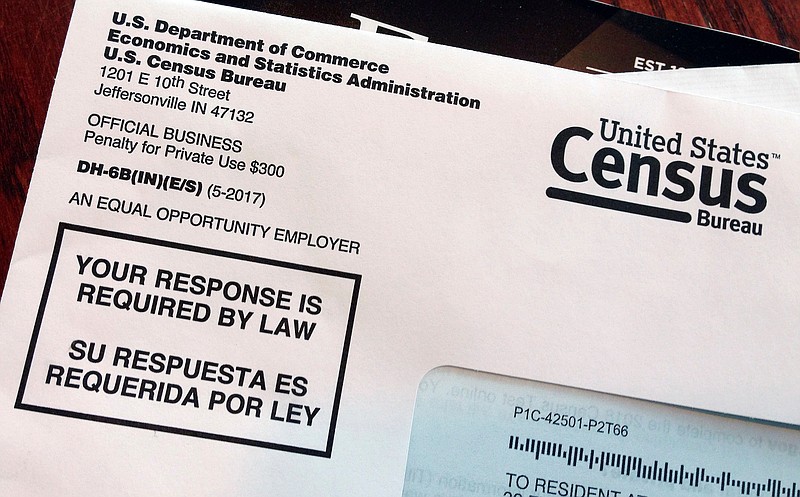Not only is next year a presidential election year, but it's also time once again for the U.S. Census to collect data.
"When people first think of the U.S. Census, they think at best an annoyance and at worst the government trying to collect their personal data," said Michael Amantea with the Census office in Chicago, which covers operations in Missouri.
Amantea said most people don't know the significant impact the Census can have on their communities. The first is through self-governance, and the second is through funding.
"Ten years ago, Missouri lost a congressional seat, which played out several ways," he said. "In Kansas City and St. Louis, much of the populations that had been in urban congressional districts had to be moved into rural districts. That diluted the rural vote because the suburbs had a much larger say in picking congressmen than they had in the past. Also, when you lose a congressional seat, you lose electoral votes, and that means the state has less say in who the president will be."
In many states, based on information collected in previous Census counts, Amantea said they know what will happen to them in an upcoming Census because they are losing or gaining congressional districts.
However, what will happen in 2020 in Missouri is not clear.
"Based on surveys we've done in the past couple of years, it looks like with a strong Census, Missouri will keep its eight congressional districts, and if there's a weak Census, we'll lose another seat," he said.
The Census' mission is to count everyone just once and in the right place, Amantea said, but to get that done, they count on "trusted voices in the community" to explain the actual effects the Census can have on a community.
"The Complete Count Committee is made up of community leaders in government and in the private sector as well as people from government and nonprofit agencies," he said. "Those from businesses or services whose funding could be affected by the census count, such as libraries, would probably be in this group."
Amantea said these groups need to be in place and trained before Thanksgiving - because Census partners, or volunteers, cannot commit much of their time to the Census between Thanksgiving and New Year's Day because of other obligations. The county commission makes the decision on who will be on the CCC for the county, and mayors or city councils decide who would do so for cities.
"One of the CCC's goals is to identify hard-to-count populations such as the homeless," he said. "One way this has been done in other areas is sending a bus to take lunch to a homeless encampment and asking them to fill out their Census forms, collect them and take them back."
Amantea noted in Cole County, the Jefferson City Correctional Center and Algoa Correctional Center are counted with the rest of the population of Jefferson City. This happens in all communities where a prison is located.
The state and national average for Census participation is 74 percent. Amantea said an area reaching that level would mean they are receiving the correct amount of federal funding that they need, according to Census data. If they go above 74 percent, then they get more than they need and vice versa.
"Cole County is 6 percent higher than the national average," he said. "In some parts of the county, it's as high as 90 percent participation. Some parts of Jefferson City, though, it's at 55 percent, and that's why the county isn't doing wildly better. A common factor we find for areas with lower participation is that the area has a high number of renters who would be moving in or out of the area."
Workers began canvassing neighborhoods Aug. 1 and have badges identifying themselves.
The Census workers are canvassing neighborhoods now to ensure addresses are correct for maps Census takers will use when they go door-to-door next year.
"We need 400,000 in our job pool, but we haven't hit 25 percent as of last week," Amantea said. "If someone needs a job, I'm sure we have something that would fit their needs."
Anyone wanting to find out more about working for the Census should visit Census.everyjobforme.com/Census/Apply.

